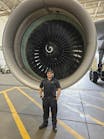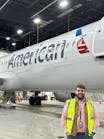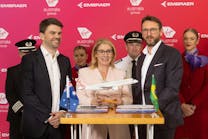Emirates, the world's largest and fastest-growing airline, would seek out partnerships with more African airlines and is exploring options to open new routes into Africa as it tries to emulate the success it has had in East and Southern Africa.
Emirates' growing interest in and its efforts to develop new direct routes from Africa to Dubai and back would be unwelcome competition for South African Airways (SAA), which has plans to develop a greater presence on the continent.
In March, Emirates showed its determination to secure meaningful toeholds in the African market after it started a service between Lusaka, Harare and Dubai.
"When we said we would open the route, people were almost laughing at us, they thought we were mad," Emirates senior vice- president for commercial operations, Jean Luc Grillet, said in Johannesburg yesterday.
& The market looked very small but when we did our analysis we realised it was likely a result of a lack of connectivity; a lot of traffic was going through SA,& he said.
Lusaka and Harare were too small to justify opening a direct route, but combining the routes, while not the Emirates business model, gave the route the critical mass it needed. The flight is now operating five times a week and in October will become a daily route.
Break-even on the route is expected within the next few months, which was a surprise since it usually took 18 months for a route to achieve, Mr Grillet said.
Emirates has already had some success with this approach. The twinned route of Addis Ababa, Entebbe to Dubai was split into their own routes in March after Emirates was able to achieve the traffic demand it required.
Mr Grillet said the arrival of Emirates in any market was usually greeted with suspicion and concern that it would stifle competition, but KLM's recent announcement of a service between Harare and Schiphol Airport in Amsterdam was proof that the Emirates carrier had stimulated travel demand by improving connectivity.
Many African countries were protecting their national flag carriers, which were battling with the torturous dynamics of high fuel prices, and weak or uncertain demand, Mr Grillet said.
While the instinct to protect the airlines was understandable, the effect of the protection was to weaken airlines, because the business was not being exposed to natural competitive market forces that would compel it to keep its standards equivalent to those of competing airlines, Mr Grillet said.
Copyright 2012 BDFM Publishers PTY Ltd.All Rights Reserved



